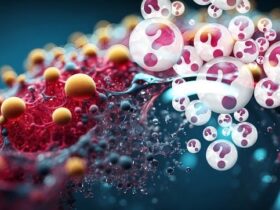Hitherto a cherished dream of humankind, space exploration is no longer confined to just rockets and robots; now comes biotechnology, more particularly genetics, finding its place in this bright journey. What would that be if we envision life on Mars or one en route to other galaxies? How do we start reading our bodies against extreme environmental conditions? That’s where biotech steps in to connect science and survival in space. Let me show you a way, in conversation since space is not only about science, it’s equally about stories.
Why Does Space Need Biotech?
I have to say, when I first heard a lecture about studying DNA in space, I was pretty skeptical. I mean, don’t the astronauts need food, water, and oxygen up there? But the deeper I got into it, the more I realized in so many ways biotechnology is foundational to solving so many of the challenges in space travel.
Think about zero gravity.
It’s fun to fantasize about the astronauts floating around in their environment, but weightlessness is not very friendly to the muscles, bones, or even DNA. Our bodily structure is for gravity; it’s thrown out of kilter in space. It isn’t the beginning of all they have to go through: a great loss in muscle mass that they do experience along with the reduction of bone density. Where biotech goes is big: Radiations in space with no protection of Earth’s atmosphere against cosmic rays directly bombard the human body and increase the risk of one’s having cancer. Here come solutions through DNA study concerning ways of repairs down to cell engineering resilient against radiation.
Genetics: Space Survival Blueprint
Genetics is an instruction book of the body. In space, this ‘instruction book’ is stressed to the limit. Herein lies the fascination:
Gene editing in space can be done, well, genes can at least be fiddled with; what with CRISPR and all. Just think about being able to fiddle with an astronaut’s DNA such that he will no longer be vulnerable to radiation. Of course, it is just science fiction, but again, scientists are working on it. In fact, NASA has actually sent CRISPR kits to the ISS for zero-gravity genetic editing studies.
Space Farming with Improved Crops: Food is one of the big factors in long expeditions. Genetic engineering supports the making of crops that would grow more quickly, thrive with less water, or endure very harsh environments in furtherance of missions to Mars.
DNA in Microgravity: Microgravity has changed the functionality of our cells. While it had activated some genes, it was slowing down the others. Once experts know those, they will be able to come up with applicable health protocols for astronauts.
Personal View: When I First Saw It in Action
I have been to one space conference where, through genetic modification, they had glowing plants. They were not just to look pretty, but eventually, they would give the space habitats both oxygen and light. It was then that it hit me this isn’t about reaching another planet; it’s about living out there in a replicable manner. Biotech doesn’t just accompany space exploration; it redefines its possibilities.
Zero Gravity Opens Up Whole New World for Biotech
Zero gravity changes everything. In a series of experiments onboard the ISS, it has been shown that even the cells behave differently under microgravity. For instance:
– DNA Repair Studies: Space radiation can destroy DNA. However, the self-repair mechanism in zero gravity is different. Such knowledge would help in researching drugs or methods to enhance the DNA repair mechanism.
– Stem Cell Research: Microgravity enables the reproduction of stem cells in ways impossible on Earth. Such work may turn out to be the most innovative pathway to regenerative medicine, both in space and on Earth.
Preparation of Humans for Long-term Space Missions
Until man steps foot on Mars, the leap is pretty daunting. A voyage to Mars may take up to six to nine months. During this period, astronauts have to face isolation, zero gravity, and radiation. Biotech is already on its way to working its way around the following:
1. Radiation-Resistant Microbes: These could shield astronauts from harmful radiation.
2. Biomarker Studies: By analyzing genes, the scientists were able to predict who may have some health issues in space.
3. Synthetic Biology: Synthetic biology turned the idea of the construction of building materials on Mars for a habitat using biological materials bacteria and algae into reality.
Challenges and Ethical Questions
Large and challenging, but gene editing in human beings does come up with a number of ethical dilemmas: should we actually tamper with the DNA of a space traveler? Perhaps those modifications pass on to future generations. As bioengineering races ahead, let us not be oblivious to such facts.
The other challenge is space experiments are expensive, adding biotech into it further complicates things. The benefit in many ways however far outweighs the cost when innovations developed here to work in ways to improve life on Earth.
The Future: Biotech and Beyond
In the future, even more biotech will be invested in it. Already nowadays, such companies as SpaceX, Blue Origin, and NASA collaborate with the biotech ones in their work to create even better solutions. Probably, one day, genetic modification will enable us to explore the icy moons of Jupiter or the methane seas of Titan. Biotech can even terraform planets and make them human-friendly.
Landing on a new world, knowing your DNA, crops, and medicines have been fine-tuned to do well a nice future biotech is building for us.
In Conclusion,It is not about going upwards alone; it’s to look into the cells, genes, and biology-musing how they adapt to the cosmos. The second fiddle played is no more. Now, biotechnology would play the main tune. And next time, if you stare at the sky, remember the secret of space is as much inside as above.







































Leave a Review